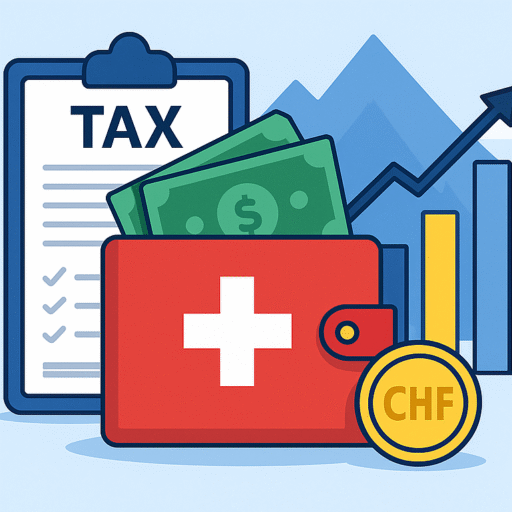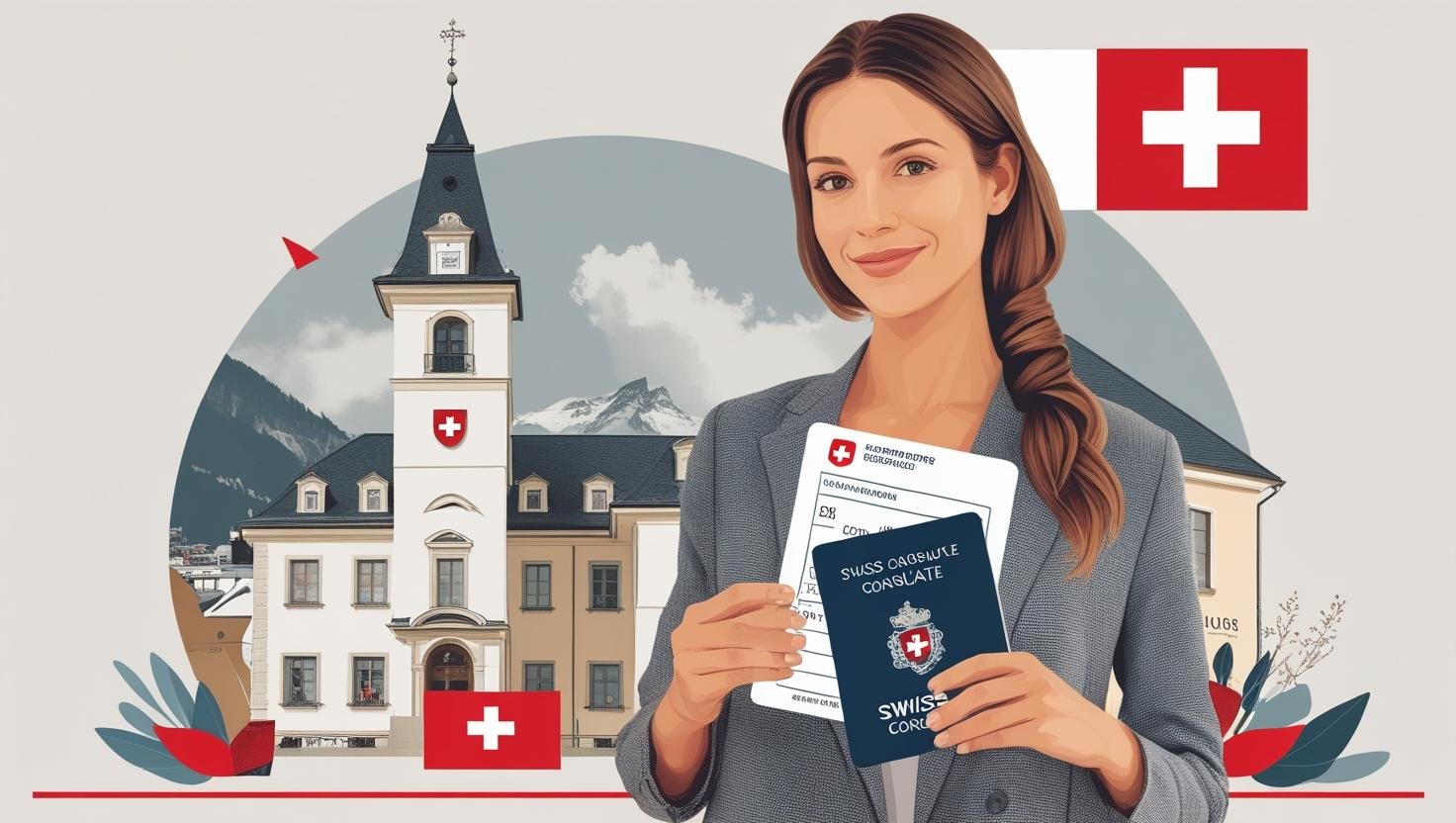Switzerland’s visa policies balance strict entry controls with streamlined processes for tourists, workers, and students. This comprehensive guide provides expats with actionable insights into navigating Switzerland’s visa landscape, from short-term Schengen permits to multi-year national visas. Whether you’re relocating for work, study, or family reunification, understanding the nuances of Swiss immigration rules is critical to avoiding delays or rejections.
Key Takeaways
- Switzerland issues two main visa categories: short-stay Schengen visas (up to 90 days) and long-term national visas (over 90 days).
- Visa exemptions apply to citizens of the EU/EFTA, Schengen Area countries, and select nations like the U.S. or Japan.
- Third-country nationals (e.g., Indians, Nigerians) face stricter documentation requirements, including proof of financial stability and ties to their home country.
- Work visas require employer sponsorship and proof that no Swiss/EU candidate can fill the role.
Do You Need a Visa for Switzerland?
Switzerland’s visa requirements depend on three factors: your nationality, the purpose of your visit, and the duration of your stay. Citizens of Schengen Area countries (e.g., Germany, France) and EU/EFTA member states can enter Switzerland visa-free for up to 90 days within a 180-day period. Nationals of visa-exempt countries like the United States, Canada, or Australia also enjoy this privilege for tourism or business trips.
Non-exempt travelers, including citizens of India, Nigeria, and the Philippines, must apply for a Schengen visa before arrival. For stays exceeding 90 days, all non-EU/EFTA nationals require a national visa (D-visa), which serves as the foundation for obtaining a residence permit.
The Schengen Area allows seamless travel across 27 European countries, but Switzerland enforces strict entry rules. Overstaying your visa risks bans of up to three years, fines, or deportation. For example, if you enter Switzerland on a tourist visa and stay beyond the 90-day limit, authorities may bar you from re-entering the Schengen Zone until the penalty period expires.
Types of Visa for Switzerland
Switzerland Tourist Visa
Designed for leisure travelers, this visa permits stays of up to 90 days within a 180-day window. Requirements include:
- A passport valid for at least three months beyond your planned departure date.
- Proof of accommodation (e.g., hotel reservations or a signed letter from a Swiss host).
- Travel medical insurance covering emergencies up to €30,000.
- Evidence of financial means, such as bank statements showing a minimum of 100 CHF per day.
Tourist visas prohibit paid work, and extensions are granted only in exceptional circumstances, such as medical emergencies or natural disasters.
Business Visa
Ideal for professionals attending conferences, meetings, or training sessions, the business visa requires:
- An invitation letter from a Swiss company detailing the event’s purpose and duration.
- A no-objection certificate from your current employer.
- Proof of business event registration (e.g., conference passes).
Multiple-entry options are available for frequent travelers, with validity periods ranging from six months to five years.
Student Visa
International students accepted into Swiss universities must:
- Provide an official admission letter from the institution.
- Demonstrate financial stability (e.g., 21,000 CHF per year for living expenses).
- Obtain a residence permit within 14 days of arrival.
Students may work part-time (up to 15 hours per week during semesters) but must inform migration authorities to avoid permit violations.
Work Visa
Switzerland prioritizes EU/EFTA workers, but third-country nationals can secure employment if they:
- Receive a job offer from a Swiss employer.
- Prove the role cannot be filled by a Swiss or EU candidate (labor market test).
- Obtain approval under Switzerland’s annual non-EU work permit quota (limited to 8,500 in 2025).
Work visas are employer-specific, meaning changing jobs requires reapplying unless the new employer secures a permit transfer.
Family Reunion Visa
Family members of Swiss residents or permit holders must submit:
- Translated marriage or birth certificates.
- Proof of the sponsor’s financial capacity (minimum 3,500 CHF/month for a family of four).
- Evidence of adequate housing (e.g., rental contracts).
Processing involves interviews to verify familial relationships and assess integration potential.
Transit Visa
Required for travelers leaving the airport during layovers. Nigerians, for instance, must provide:
- Confirmed onward flight tickets.
- Valid visas for their final destination.
- An airport transit visa if connecting through another Schengen country.
Transit visas are typically valid for 24–48 hours and do not permit tourism or extended stays.
Switzerland Schengen Visa Requirements
Applicants must compile the following documents:
- Completed Application Form: Available on Swiss embassy websites. Ensure all fields are filled accurately; unsigned forms are the top reason for rejection.
- Passport Photos: Two biometric-compliant images (35mm x 45mm, white background).
- Travel Insurance: Policies must cover repatriation, emergency medical care, and COVID-19 treatment. AXA and Allianz offer Schengen-compliant plans.
- Financial Proof: Bank statements showing 100 CHF per day, sponsorship letters, or scholarship confirmations.
- Accommodation Proof: Hotel bookings or a host’s “Declaration of Sponsorship” notarized by Swiss authorities.
Common pitfalls include insufficient funds, expired passports, and incomplete insurance coverage. For example, a Nigerian applicant was rejected in 2024 for submitting a policy that excluded hospitalization costs.
How to Apply for a Visa for Switzerland
Step 1: Choose an Application Center
- Embassies/Consulates: Direct submissions for countries without third-party partnerships.
- VFS Global: Mandatory for Indian, Nigerian, and Filipino applicants.
Step 2: Schedule an Appointment
Book slots 2–3 months in advance, especially during peak seasons (summer, December holidays). Delays are common at high-demand centers like Mumbai or Lagos.
Step 3: Prepare for the Interview
Anticipate questions like:
- “What is your daily itinerary in Switzerland?”
- “Who is funding your trip?”
Bring original documents (pay stubs, property deeds) to corroborate your application.
Step 4: Pay Fees
- Schengen visa: 90 EUR for adults, 45 EUR for children (non-refundable).
- National visa: 80 EUR for work permits, 50 EUR for students.
Step 5: Submit Biometrics
Fingerprints and facial scans are required for applicants aged 12+. Data is stored for 59 months, expediting future Schengen applications.
Switzerland Visa Processing Time and Fees
| Visa Type | Processing Time | Fee (Adults) |
|---|---|---|
| Schengen (Tourist) | 15–30 calendar days | 90 EUR |
| National (Work) | 8–12 weeks | 80 EUR |
| Student | 6–12 weeks | 50 EUR |
Delays occur during peak periods. For instance, Filipino applicants waited 14 weeks for student visas in 2024 due to backlogged consulates.
Country-Specific Guidelines
U.S. Citizens
- Visa-Free Entry: Permitted for 90 days within 180 days.
- National Visas: Apply via the Swiss embassy in Washington D.C. for work, study, or family reunification.
Indian Applicants
- VFS Global Submission: Required in Mumbai, Delhi, or Bengaluru.
- Documents: Three years of tax returns, employer leave approval, and flight itineraries with confirmed returns.
Nigerian Citizens
- High Rejection Rates: 37% in 2024 due to incomplete documentation.
- Critical Proof: Employment verification, property deeds, and family ties to Nigeria.
FAQs
Is Switzerland Part of the Schengen Area?
Yes. A Schengen visa allows travel to Switzerland and 26 other European countries.
Can I Extend My Visa?
Schengen extensions are granted only for emergencies (e.g., medical crises). National visas require renewal through cantonal migration offices.
Do I Need Travel Insurance?
Yes. Policies must cover at least €30,000 in medical costs and repatriation.
Final Tips
- Apply Early: National visas take months to process—submit applications 4–6 months before your planned move.
- Double-Check Documents: Missing paperwork causes 40% of rejections. Use checklists from embassy websites.
- Attend Interviews Promptly: Late arrivals risk cancellation; arrive 15 minutes early with all materials.
By following these guidelines, you’ll streamline your Swiss visa application and avoid common pitfalls. For the latest updates, consult the Swiss Federal Department of Foreign Affairs or your local embassy.

